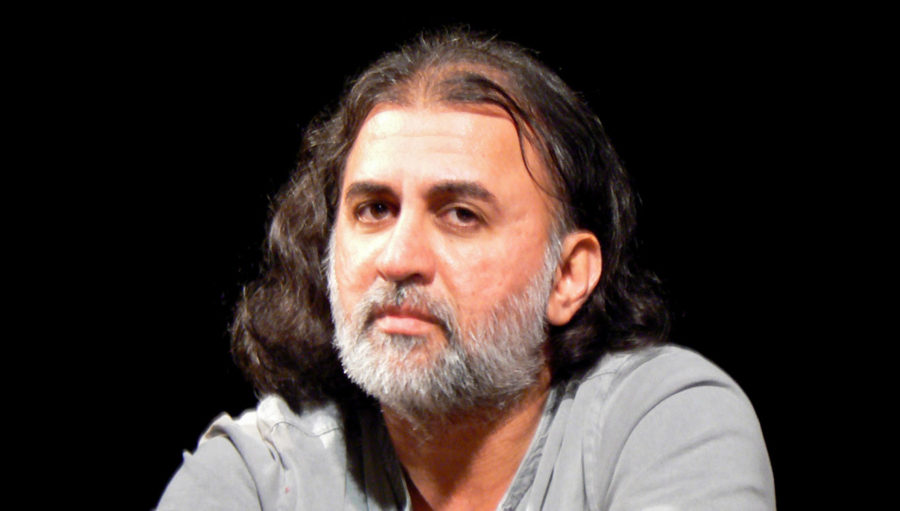After Tarun Tejpal, the founder and former editor-in-chief of Tehelka, was acquitted of all charges on Friday in the 2013 rape, unlawful confinement and sexual harassment case, the Network of Women in Media, India (NWMI) expressed its solidarity with the rape survivor.
“Her struggle has been the struggle of every woman facing sexual harassment and sexual violence at the workplace and attempting to push back the asymmetric power of dominant men in the media. It has been a conversation starter in newsrooms to better understand gender-based violations and has given courage to women to jettison shame and speak out about workplace harassment and violence,” wrote NWMI.
Tejpal was accused of forcing himself on one of his junior colleagues inside an elevator of the Grand Hyatt, Bambolim, Goa on November 7 and 8, 2013 during the Think 13 festival, Tehelka‘s official annual event.
On November 18, 2013, the survivor filed a complaint with the magazine’s then managing editor and journalist Shoma Chaudhry. Soon, Tejpal sent a formal “unconditional” apology to the survivor “for the shameful lapse of judgement that led me to attempt a sexual liaison despite your clear reluctance that you did not want such attention from me.”
Calling the incident a “bad lapse of judgement”, Tejpal wrote another letter to Chaudhry that “an awful misreading of the situation, have led to an unfortunate incident that rails against all we believe in and fight for.”
According to Live Law, the survivor insisted on setting up an anti-sexual harassment cell under the Vishakha guidelines to investigate the matter. She claimed that Tejpal’s apology presented an “entirely different version” from her testimony with his attempts to establish that a “sexual liaison took place as opposed to him sexually molesting me”.
Tejpal eventually stepped down as the editor for six months, which the NWMI believed was “simply not enough” and demanded “institutional redress of sexual harassment and assault”.
Recommended
After his anticipatory bail was rejected by a local court in Goa, Tejpal was arrested on November 30, 2013. He was tried for committing offences punishable under Sections 341 (wrongful restraint), 342 (wrongful confinement), 354 (sexual harassment), 354A(1)(I)(II) (demand for sexual favours), 354B (assault or use of criminal force to woman with intent to disrobe), 376 (2)(f) (person in a position of authority over women, committing rape) and 376(2)(k) (rape by a person in a position of control) of the Indian Penal Code.
In February 2014, the Goa Police Crime Branch filed a 2,846-page charge sheet against him. He was granted bail by the Supreme Court in July that year.
The Session Court in Goa framed charges against him in September 2017 and the survivor submitted her testimony in March 2018 along with 71 witnesses, statements of her colleagues, and electronic evidence in the form of CCTV footage, e-mails and WhatsApp messages by the prosecution and cross-examination of five defence witnesses.
Rejecting Tejpal’s plea of quashing all charges against him, the Supreme Court in August 2019 had directed the Sessions Court to complete the trial within six months terming it “morally abhorrent” and an “assault on the privacy of the victim”.
Despite 10 additional witnesses by the prosecution in January, the District and Sessions Court at Mapusa, Goa, led by Additional Sessions Judge Kshama Joshi reserved her verdict, of acquitting Tejpal of all charges.

The NWMI has consistently supported the survivor since the incident. In November 2013, it issued a statement with demands to set up a complaints committee by all media houses, including Tehelka, to deal with sexual harassment at the workplace along with an independent inquiry into the incident of sexual harassment/assault during the Think festival and punishment for the guilty in accordance with the law. It also demanded assistance from the organisation in filing a case under the Criminal Law (Amendment) Act, 2013, should the survivor in this instance wish to initiate criminal proceedings.
In June 2014, the NWMI wrote to the Press Council of India and the Editors’ Guild of India protesting against two articles on the Tehelka case, based on CCTV footage, which “disregard the law as well as journalistic ethics.” It had responded to the articles published in The Citizen and Outlook with the headlines “Alleged victim’s testimony in the Tarun Tejpal case at variance with CCTV footage” (‘Alleged victim’s testimony in the Tarun Tejpal case at variance with CCTV footage’), which was originally published under the byline of senior journalist Seema Mustafa but was later credited to ‘Citizen Bureau’. The other article headlined “What the elevator saw” was written by senior journalist Manu Joseph.



